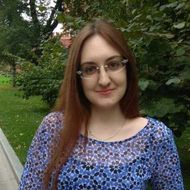PhD Research Seminar: Community detection, image captioning, language-model diagnostics
First talk: Community Detection in Feature-Rich Networks Using Data Recovery Approach
Speaker: Soroosh Shalileh, third-year PhD student, Faculty of Computer Science
The problem of community detection in a network with features at its nodes takes into account both the graph structure and node features. The goal is to find relatively dense groups of interconnected entities sharing some features in common. There have been several approaches proposed for that. We apply the so-called data recovery approach to the problem by combining the least-squares recovery criteria for both the graph structure and node features. In this way, we obtain a new clustering criterion and a corresponding algorithm for finding clusters one-by-one, so that the process can be interpreted as that of detecting communities indeed. We show that our proposed method is effective on real-world data, as well as on synthetic data involving either only quantitative features or only categorical attributes or both. In the cases when attributes are categorical, state-of-the-art algorithms are available. Our algorithm appears competitive against them.
Second talk: Advantages and Disadvantages of Using Deep Learning in Image Captioning
Speaker: Ismail Kayali, second-year PhD student, Faculty of Computer Science
With the increase in the functionality of computer vision systems and their quality, the formation of new intelligent properties of systems based on the possibility of processing stored images, the techniques of intelligent-vision systems have been successfully used in many fields such as security, medicine, etc. Image captioning is a challenging task, which has recently got significant attention from computer vision and natural language processing researches, as well as great investment plans from companies. In image captioning, we need to detect and then recognize the objects in the image with their features and be able to find out how the are related. This will make it possible to generate syntactically and semantically correct sentences that describe them.
Machine learning methods enhance many of image captioning systems, but they have some defects, which make them not always the best option. We will present a comparative analysis of the current and near-future applications of image captioning methods, which deal with computer vision systems and natural language processing applications.
Third talk: Russian SuperGLUE: Examining BERT Behaviour on Multilingual Diagnostics
Speaker: Maria Tikhonova, second-year PhD student, Faculty of Computer Science
Recent advances in the field of language models require a methodology for their broad diagnostics and testing. For the English language, there exist several natural language understanding benchmarks such as GLUE and SuperGLUE, which is not the case for Russian. We will introduce a new benchmark, Russian SuperGLUE, of nine tasks for Russian. Developed from scratch, it is organized similarly to the original SuperGLUE.
Besides, we provide a detailed analysis for multilingual BERT performance on SuperGLUE diagnostics in English and Russian translation. Using linguistically-aware adversarial attacks, it is established which language categories tagged in the diagnostic set are crucial for the correct predictions of the model and which are the most unstable. Despite high expectations, most of the language categories are not learnt by the model. We offer for discussion new ways of developing multilingual model diagnostics, which are more typologically weighted and organized into levels.
Каяли Исмаил
Международная лаборатория интеллектуальных систем и структурного анализа: Стажер-исследователь
Тихонова Мария Ивановна
Аспирант базовой кафедры Яндекса
Шалилех Соруш
Научно-учебная лаборатория методов анализа больших данных: Стажер-исследователь



